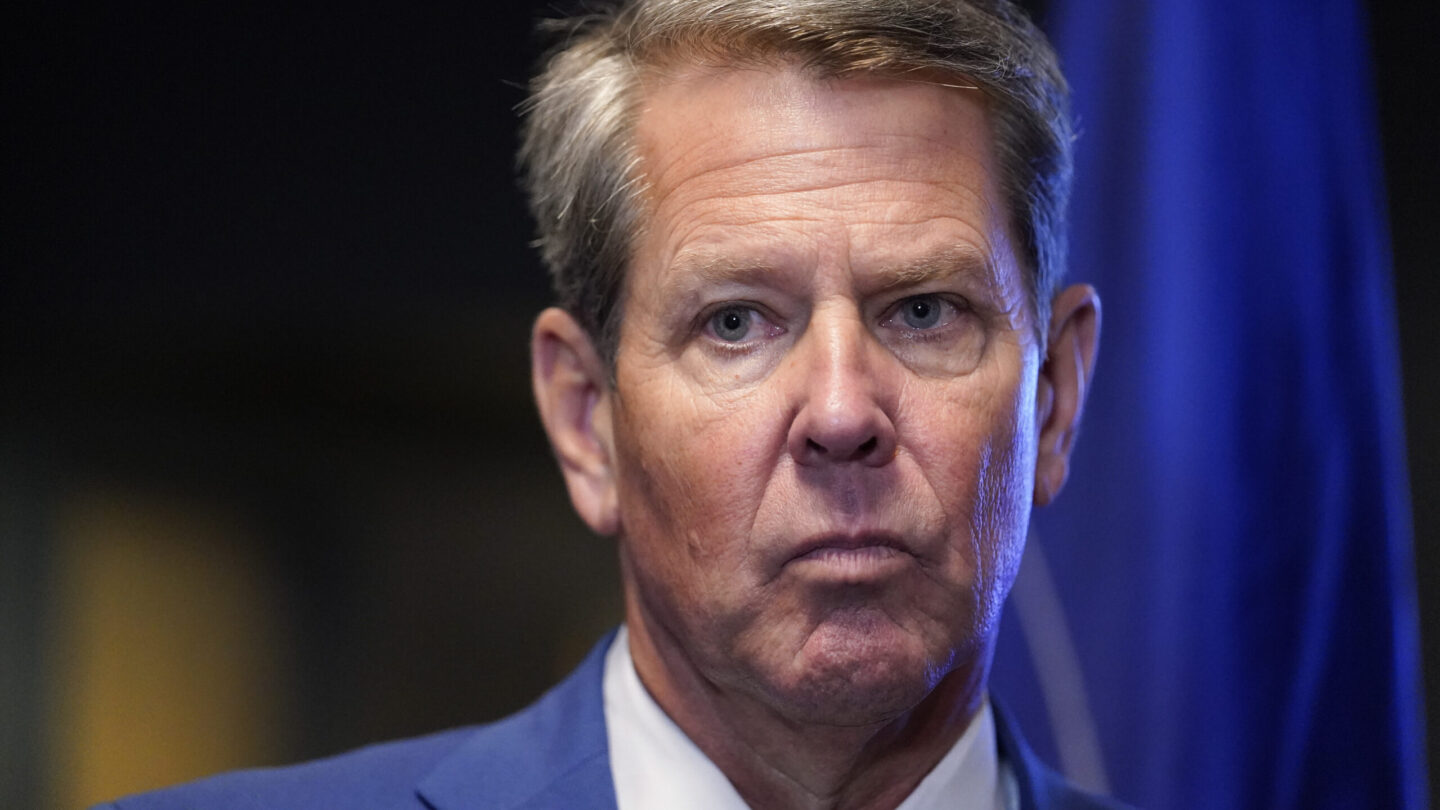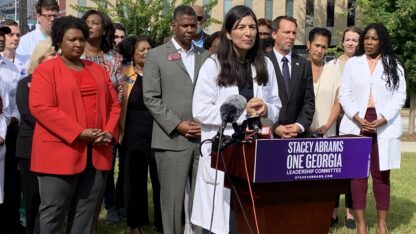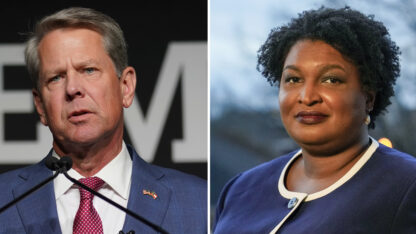The judge presiding over a special grand jury that’s investigating possible illegal attempts to influence the 2020 election in Georgia is wading into a fight over whether Republican Gov. Brian Kemp has to testify before the panel.
Fulton County Superior Court Judge Robert McBurney, who’s supervising the special grand jury, scheduled a hearing for Thursday morning after a dispute between lawyers for the governor and Fulton County District Attorney Fani Willis’ team of prosecutors escalated from tense emails to court filings in recent weeks.
The increasingly heated rhetoric is playing out as the Republican governor, who is seeking reelection in the fall, seeks to avoid speaking to a special grand jury looking into whether former President Donald Trump and his allies broke any laws as they tried to overturn Trump’s narrow election loss to Democrat Joe Biden. Kemp’s lawyers have accused Willis, a Democrat, of pursuing his testimony for “improper political purposes,” an allegation the district attorney strongly denies.
Willis’ investigation was prompted by a January 2021 phone call between Trump and Georgia Secretary of State Brad Raffensperger during which the then-president suggested the state’s top election official could “find” the votes needed to overturn his loss.
Raffensperger and some other state officials have already appeared before the special grand jury, but Kemp is one of a number of potential witnesses who are fighting orders to testify.
U.S. Sen. Lindsey Graham, R-S.C., whose telephone calls to Raffensperger and his staff in the weeks after the election are of interest to prosecutors, was supposed to testify earlier this week, but a federal appeals court put that on hold while he fights his subpoena.
A judge in Texas last week ordered Dallas-based lawyer and podcaster Jacki Pick to travel to Atlanta to testify, and her attempt to challenge that order was denied Tuesday by an appeals court. Pick, who’s also known as Jacki Deason, gave a presentation before a Georgia legislative committee in December 2020 in which she alleged fraud by election workers at State Farm Arena in Atlanta.
Willis has said she’s considering summoning Trump himself to appear before the grand jury, a step that would surely set off a legal fight. The high-stakes investigation is one in a string of serious legal threats the former president is facing.
Willis told Kemp attorney Brian McEvoy in a June email that she and her team wanted to ask the governor, among other things, about the call between Trump and Raffensperger. Trump also called Kemp in December 2020 asking him to order a special legislative session to secure the state’s electoral votes for him.
After an agreement to have the governor sit for a recorded interview fell apart, the district attorney’s office got a subpoena to have the governor testify on Aug. 18, according to court filings. The day before he was to testify, Kemp’s lawyers filed a motion to quash that subpoena.
During Thursday’s hearing, McBurney will determine whether Kemp has to abide by the subpoena.
Kemp’s lawyers argue that he is protected from testifying about his official duties by “sovereign immunity,” a principle that says the state can’t be sued without its consent. They also cited executive privilege, saying any material related to the governor’s deliberative process and communications is protected. And they raised attorney-client privilege, saying the governor routinely sought advice from his office’s attorneys in relation to the 2020 election and shouldn’t have to testify about that.
Willis’ team has argued that sovereign immunity and executive privilege don’t apply in this case and that they would avoid any topic that may be subject to attorney-client privilege.
Associated Press writer Jamie Stengle in Dallas contributed to this report.









